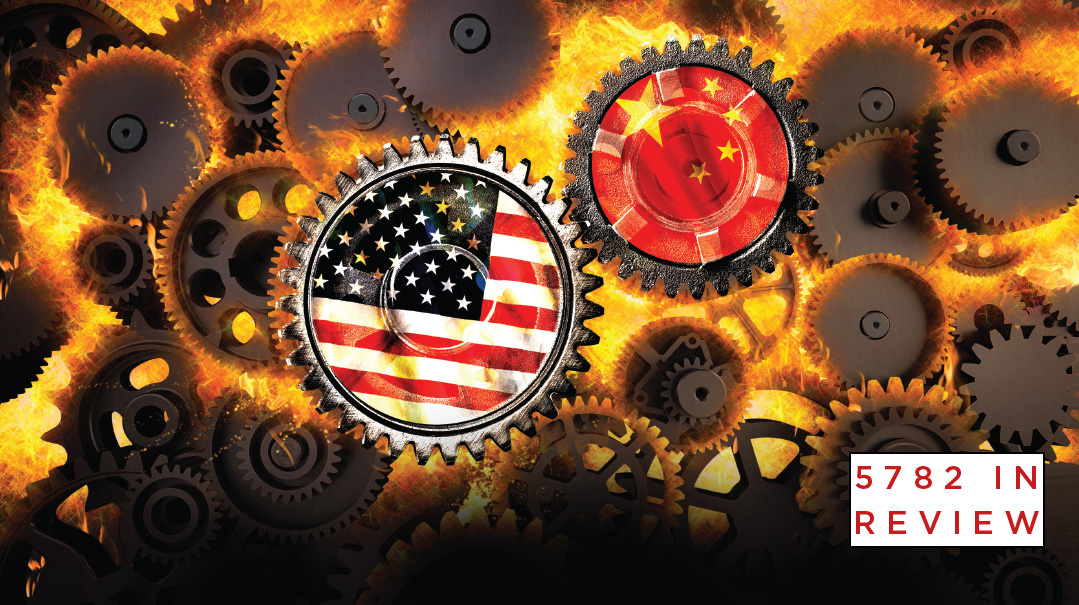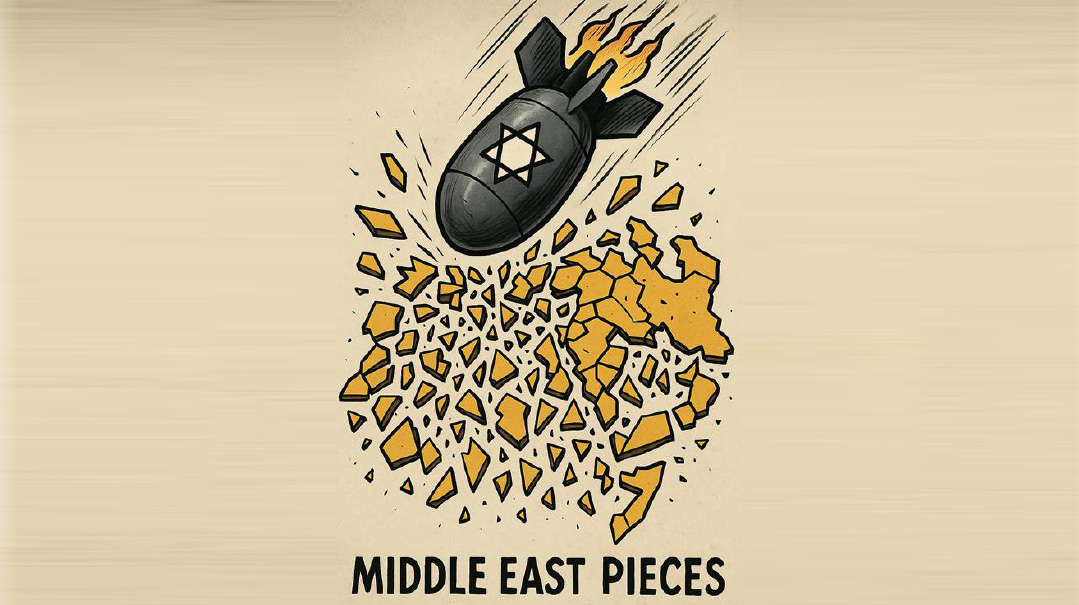Wheels of History

Make no mistake: The tectonic plates of geopolitics have shifted

Wheels of History
When 19th-century military analyst Carl von Clausewitz wrote of the “fog of war” to describe the confusion that reigns on battlefields, he had conflicts like Ukraine in mind.
The very word “war” — from an old High German term meaning “confuse” — speaks to the sheer haziness that surrounds soldiers and commanders alike as opposing armies fumble and claw at each other.
Putin’s war in Ukraine is as foggy as any in history. But away from the front lines, the confrontation has paradoxically had the opposite effect.
Like a lightning strike on a dark night, the first flares dropped by Russian planes over Kyiv in February bathed the geopolitical landscape in a blinding flash of clarity.
In the harsh light of Europe’s first major conflict since World War II, it’s clear that Pax Americana — the long, stable peace born of overwhelming US power — is over.
Great power conflict is back, and 5782 will be remembered as the year in which it returned. As serious as inflation, supply chain crisis, and political instability are, they’re background noise compared to the central event of the year.
Make no mistake: The tectonic plates of geopolitics have shifted.
Europe is now at proxy war for the foreseeable future. So far, only Russia and Ukraine are shooting, but multiple European Union states are aiding Kyiv, and are in turn threatened by Moscow.
With Russian gas supplies cut off, Europe will struggle to keep the heat on this winter. A weak Germany is vacillating, France and Italy want to cozy up to Putin, and Britain has reverted to its historic role of intervening on the Continent to balance an over-aggressive Russia.
With Putin now forced to source shells in North Korea and drones in Iran, and unable to conquer a country a fraction of Russia’s size, his power play has exposed the fact that his country is a humbled, second-rate power. Cut off from the West, he faces a future as second fiddle to China in an anti-American axis.
Like the man who cooled the boiling bath by jumping in, to use Chazal’s metaphor, Putin has dared to cross America’s red lines, and Beijing is waiting to take advantage.
Chinese generals now think that if they can take Taiwan — an American ally — within 48 hours, the US won’t intervene when presented by a fait accompli.
The loss of Taiwan would be a national humiliation for the US. Like the fall of Singapore in World War II, which exposed the illusion of the British Empire’s strength, the fall of Taiwan would show US power to be a sham.
It would hand the world’s most advanced silicon chip industries to China, and make the Pacific a contested zone for the first time since 1945.
If America did intervene, risking its aircraft carriers against the People’s Liberation Army’s ship-killing missiles, the result would be a superpower clash.
Even if Beijing contents itself with saber-rattling, the division of the world into two rival blocs — one US-led, one revisionist — is almost a done deal.
How did we get here? Decades of US hubris and fecklessness — sinking trillions into the Middle East and then retreating in disarray — are partly to blame.
So, too, was the decision to supercharge China’s economy by admitting it to the World Trade Organization while naively hoping that it would eventually liberalize.
Whether we humans understand or not, the giant wheels of history rotate, guided by a Divine Hand, moving inexorably to whatever Hashem has in store for us.
Through the fog of war this year, those wheels could be seen spinning ever faster.
Turning Point
In the run-up to Rosh Hashanah, Queen Elizabeth’s passing prompted a real sense of mourning for millions around the world, including many British Jews, and provided many a drashah with fertile material on malchuyos and kingship.
Born in 1926, the queen was an iconic link to a vanished world notable for very different values, including reserve. With her far-more outspoken son now King Charles III in an era of polarization, will the monarchy be able to stay apolitical in the post-Elizabethan age?
Unknowns
Remember Elon Musk’s Twitter takeover bid? It seems so long ago that liberal hearts bled at the thought of the social media platform readmitting Donald Trump. Musk had spoken of restoring free speech to the digital “town square.” At $44 billion, his quest didn’t come cheap, but it also didn’t seem to be about the money. Then by July, the billionaire Tesla founder was trying to back out, claiming that he’d been misled about the number of fake accounts on the social media platform.
So, what put paid to the year’s most sensational buy — cold feet, business sense, or a gazillionaire’s fickleness?
Down and Out
It unfolded in slow motion, but in the end, there was a sense of inevitability about Boris Johnson’s scandal-ridden downfall. Only three years after winning a stonking majority to defeat Jeremy Corbyn and “Get Brexit Done,” Johnson was out.
The man who said he was “more likely to be reincarnated as an olive” than serve as prime minister was felled by a lockdown party (or two). Along his dash through Downing Street, he almost succumbed to Covid, and played a key role in shoring up Ukraine’s defenses. All in all, the whole saga felt slightly epic, and very Boris.
$44 million
Is Trumpism a threat to the Union or not? Democrats can’t seem to make up their minds. According to OpenSecrets, a transparency group, Democrats have spent the amount above on promoting Trumpian candidates in GOP primaries based on the belief that full-blown supporters of the former president will be easier to defeat than moderates in a general election.
At the national level, Biden’s recent speech railing against the Trumpism of the Republican Party is part of the same strategy.
Some Democrats aren’t happy: “It’s very dangerous to elevate people who are hostile to democracy,” Democratic political strategist Howard Wolfson told the Washington Post. “Either this is a crisis moment, or it isn’t.”
(Originally featured in Mishpacha, Issue 929)
Oops! We could not locate your form.




